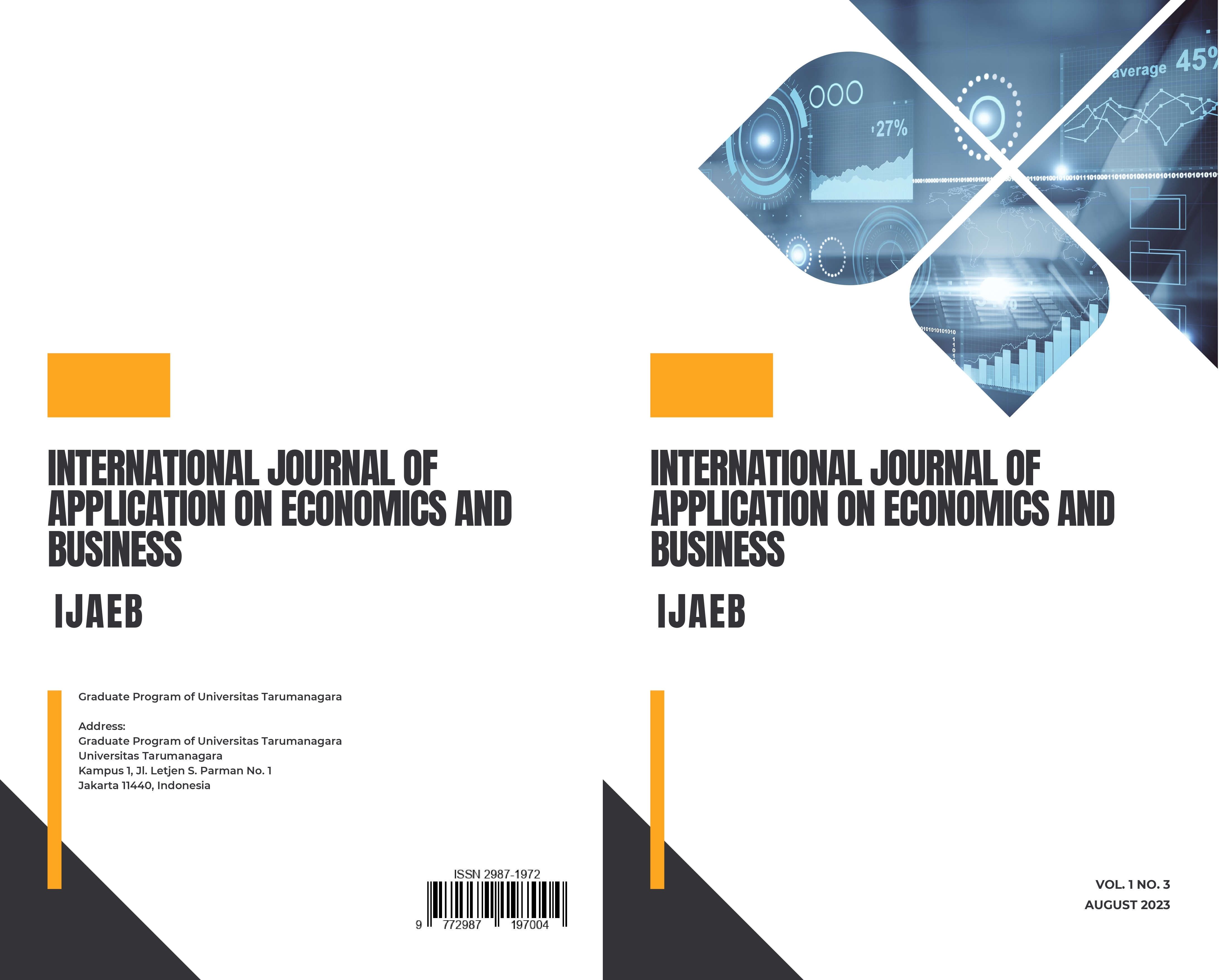THE ROLE OF SUBJECTIVE NORMS TO PREDICT EXPERIMENTAL BEHAVIOR THROUGH INTENTION OF SME OWNER IN JAKARTA
Main Article Content
Abstract
The crisis due to the pandemic has had a great negative impact on the survival of small and medium enterprises (SMEs) in various regions in Indonesia. Some gave up and closed their businesses. Some still survive and even continue to grow until now. For SMEs that persist, it is suspected that they have carried out a series of experiments so that their business survives. Experimental activities are carried out from modifying the product to changing the business model. This study was conducted to analyze the effect of subjective norms, namely family and closest friends, on the experimental behavior of SMEs mediated by intention. The theory of planned behavior is used to explain the relationship between these variables. The survey respondents are SME actors, totaling 35 people and running their businesses in Jakarta. The results showed that experimental behavior was influenced by intention, but subjective norms did not affect intention significantly. The presence of friends and family has a weak impact on SMEs to conduct a series of experiments on their business in order to maintain business sustainability.
Article Details
Section

This work is licensed under a Creative Commons Attribution-NonCommercial-ShareAlike 4.0 International License.
This journal provides immediate open access to its content on the principle that making research freely available to the public supports a greater global exchange of knowledge.
IJAEB by Graduate Program of Universitas Tarumanagara is licensed under a Creative Commons Attribution-NonCommercial-ShareAlike 4.0 International License.. Permissions beyond the scope of this license may be available at https://journal.untar.ac.id/index.php/ijaeb
References
McKibbin and Fernando (2020). The economic impact of Covid-19, book chapter Economics in the time of crisis, edited by Richard Baldwin and Beatrice Weder di Mauro, A. VoxEU.org Book, CEPR Press.
Kuckertz, A., Brändle, L., Gaudig, A., Hinderer, S., Reyes, C.A.M., Prochotta, A. and Berger, E.S. (2020). Startups in times of crisis – a rapid response to the COVID-19 pandemic, Journal of Business Venturing Insights, Vol. 1.
Asian Development Bank (2022). Southeast Asia Rising from The Pandemic, DOI: http://dx.doi.org/10.22617/TCS220093-2.
Haneberg, D.H. (2020). SME’s manager learning from crisis, and effectual behavior, Journal of Small Business and Enterprise Development © Emerald Publishing Limited 1462-6004 DOI 10.1108/JSBED-01-2021-0009
Ajzen, I (1991). The Theory of planned behavior, Organizational Behavior and Human Decision Processes, 50, 179-211, 1991.
Sarasvathy, S.D. (2001). Causation and effectuation: toward a theorethical shift from economic inevitability to entrepreneurial contingency, Academy of Management Review, 26 (2), 243-263.
Perry, J., Chandler, G. and Markova, G. (2012). Entrepreneurial effectuation: a review and suggestions for future research, Entrepreneurship Theory and Practice, Vol. 36, No. 4, pp. 837-861.
Chandler, G.N., DeTienne, D.R., McKelvie, A., Troy, V., Mumford, T.V., (2011). Causation and effectuation processes: a validation study, Journal of Business Venturing, 26, 375-390.
Sarasvathy, S. and Dew, N. (2005). Entrepreneurial logics for a technology of foolishness”, Scandinavian Journal of Management, Vol. 21 No. 4, pp. 385-406.
Ansoff, H.I. (1965), Corporate Strategy: An Analytic Approach to Business Policy for Growth and Expansion, McGraw-Hill, New York, NY
Porter, M. (1980), Competitive Strategy, Free Press, New York, NY.

